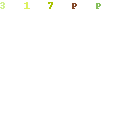This Week In Recovery Lesson
The Experience of Letting Go
Abraham of the Old Testament had finally received the blessing of the promised son. He had toiled for years, agonizing over the unmet expectation he had that God would make it possible for Abraham’s barren wife Sarah to become pregnant fulfilling God’s promise. At one point, Abraham compromised waiting for God’s promise, and ventured on his own at the request of his wife, Sarah, to impregnate his wife’s maidservant Hagar. Abraham perceived that this was necessary to have the promised son through her to carry on his family’s legacy. Hagar did indeed have a son who we know to be Ishmael. Abraham’s choice to be with Hagar was about going his own way—his clever idea to carry out the will of God; in actuality, independent of the purposeful will of God. His choice still carries severe consequences to this day as the root of the conflict in the Middle East. Abraham’s son Isaac, the promised son of God, would be born from Sarah some fifteen years later.
 Abraham was then reminded by God who his son belonged to. According to the story in Genesis 22, Abraham was ordered to bring his son Isaac to the mountainous region of Moriah to prepare an offering to be sacrificed unto God. At one point young Isaac even got curious and asked, “Where is the lamb for the burnt offering?” Abraham told Isaac that God would provide it. Then, once the altar was built, Isaac was bound and laid onto the altar to be sacrificed. Just then, the Angel of the Lord called out to Abraham and presented to him the lamb that was to be sacrificed instead of Isaac. It would be through Isaac’s son Jacob that the nation of Israel would be born.
Abraham was then reminded by God who his son belonged to. According to the story in Genesis 22, Abraham was ordered to bring his son Isaac to the mountainous region of Moriah to prepare an offering to be sacrificed unto God. At one point young Isaac even got curious and asked, “Where is the lamb for the burnt offering?” Abraham told Isaac that God would provide it. Then, once the altar was built, Isaac was bound and laid onto the altar to be sacrificed. Just then, the Angel of the Lord called out to Abraham and presented to him the lamb that was to be sacrificed instead of Isaac. It would be through Isaac’s son Jacob that the nation of Israel would be born.
This was an exercise in letting go and committing to recovery God’s way. God did not change his mind about Isaac. The human sacrifice of Isaac was never God’s intention. Abraham needed to learn that everything is God’s. All that Abraham possessed was given to him by God. God is in authority and control and has the power over everything. We must learn this as well. It is not that God merely claims everything; it is all his, period. God, on the other hand wants so much to freely give to us all of that which is his. When God then does bless us, we have a tendency to give way to sin and patterns of sinful behavior, therefore, corrupting and perverting the provisional blessings and prosperity of God. Each time this sequence occurs, we’re in trouble. Our lives get complicated through our selfishly ambitious sinful nature. Abraham’s life became difficult as well as he became impatient in his faith in God to provide and did things his own way. Abraham needed to let go of his desire for a son and let God do rightly what only God can do rightly. When God does a thing it is the best thing.
- What is this story all about from your perspective?
- What would you say Abraham needed in his life?
- What would you say was Abraham’s motivation for connecting with Hagar, his wife Sarah’s hired help?
- What would you say Sarah was thinking since it was her idea that her husband have sex with another woman? What motivated her?
- Assuming Abraham and Sarah had been faithful to one another throughout their marriage, what do you think the emotional consequences might have been from this event?
- How would you describe the consequences of Abraham and Sarah’s actions still in play to this day in the middle east?
- Why would you say God waited so long to bless Abraham and Sarah with their son, Isaac?
- What would you assume or guess was God’s motivation for challenging Abraham (and Sarah, by the way) to offer up their promised son as a sacrifice back to God?
- What would you imagine was going through the mind and heart of Abraham and Sarah concerning the weight of this sacrifice?
- What would you imagine was going through the mind and heart of pre-adolescent Isaac as he was preparing the offering with his dad?
- How did God intervene? Why?
- How would you imagine the thought and feelings of Abraham, Sarah, and Isaac changed after God intervened with the lamb?
Please click on TWRAC 025 for this week’s challenging application.
